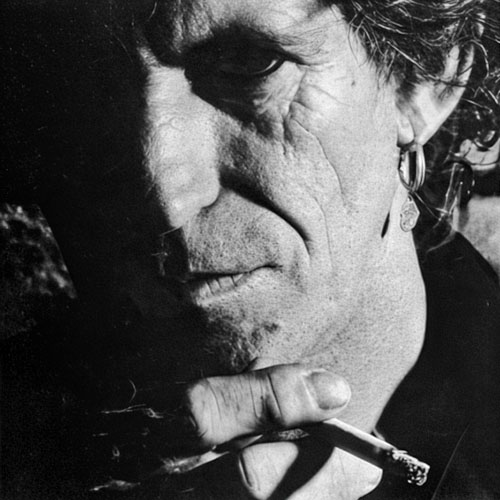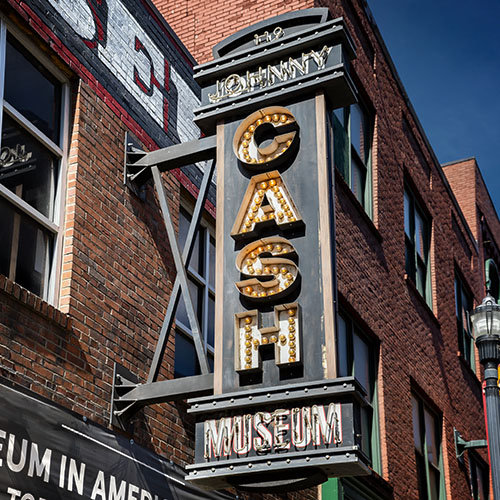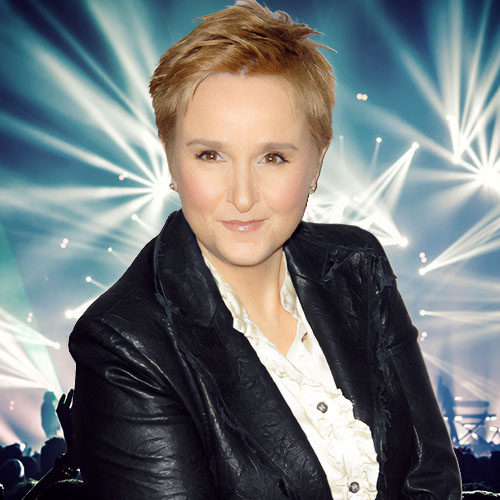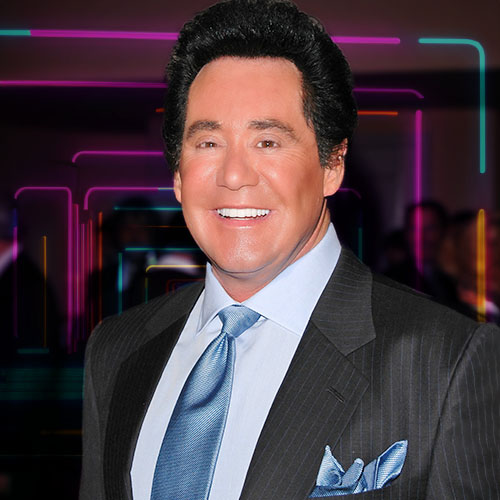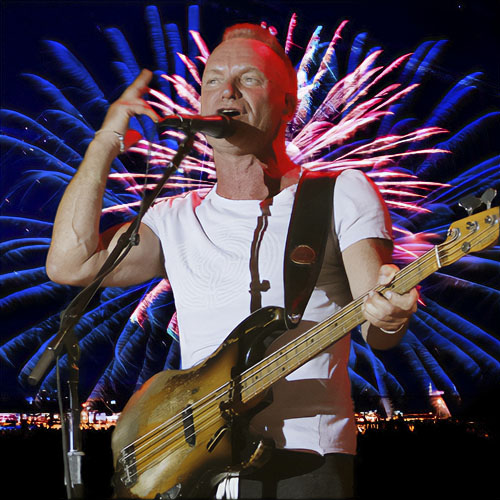The Country Music Association’s Female Vocalist of the Year is unconventional, witty, smart, sexy … and outspoken.
Riding High with Lee Ann Womack
Lee Ann Womack is lying on her stomach on a roll of seamless paper at a Nashville photography studio when she blurts out, “Uh-oh, I think I should have gone potty” But there’s ample time, because the pose doesn’t please the photographer, who’s after something a bit more provocative and soon has Womack — who’s barely bigger than a Texas mosquito — up on all fours.
“You should see some of the kitten-with-a-whip photos of her in a black leather dress,” jokes her publicist, Holly Gleason.
Certainly the 35-year-old singer, who was born and reared in Jacksonville, Texas, has been prowling the upper ranks of the music business with the success of I Hope You Dance, her triple-platinum album, and it’s phenomenal title track, which Billboard magazine named the 2000 Country Single of the Year and the 2001 Adult Contemporary Single of the Year after it spent six weeks at No. 1 on the country singles chart and 11 weeks atop the AC chart. (“I Hope You Dance” also won the CMA’s Song of the Year and Single of the Year awards, and was voted the Academy of Country Music’s top Song, Single, and Vocal Event last year.)
But the song’s almost serene hopes and wishes for cherished loved ones belies the artist’s considerable grit and spunk. She’s often compared to Dolly Parton for her feathery vocal quality, but over a dinner of chopped salad in a Nashville eatery it quickly becomes apparent that Womack can also match the cantilevered diva for brains, wit, and unadulterated moxie. Her fourth album, expected in the fall, is one of Nashville’s most eagerly awaited projects.
People have an image of you that’s mostly from “I Hope You Dance.” Is that song representational of who you are, or has it made you look maybe a little too goody-goody?
Well, I wouldn’t want anybody to think I was trying to make myself look like I was goody-goody, because I’m definitely not. I think being positive is a wonderful thing. I love “I Hope You Dance”; it’s changed my life. But it probably would be a shock to some people to learn that “I Hope You Dance” is not my favorite thing I’ve ever done, even though I enjoy singing it every time.
“I look for songs that make me feel hurt and pain. Then my poor record label has to try and make hits out of them.”
What is your favorite?
Well, “Never Again, Again” is right up there. I love that.
Somebody said you sing country for grown-ups.
Yeah. I have to work to make myself record songs that I think are obvious hits. I don’t know what a hit is. I look for songs that make me feel hurt and pain, and that I think will add some depth to the record. Then my poor record label has to try to make hits out of them.
Well, you’re really good at giving voice to pain.
I don’t know why that is, but I’ve always been that way. Maybe I should make a CD called I Feel Your Pain.
Sounds like a duet with Bill Clinton.
Yeah, I’ll have him play sax [laughs].
With the adult-contemporary success of “I Hope You Dance,” did your record label want you to follow the lead of Faith Hill and Martina McBride, and record more pop-influenced material?
I can honestly say that I have never really been pushed to do anything like that, though certainly I’ve had suggestions. But I can’t deny that I haven’t felt a little pressure, either from myself or from some other people that work around me. But I just haven’t been able to do it yet, or I haven’t found the right song. And I’m not very good at being pushed. I think I listen well to guidance, but if you try to push me into something, I won’t do it. And I don’t like to be told something can’t be done, because I honestly can’t think of one thing that can’t be done. The core people around me have learned that.
And yet people tell me you’re not difficult to get along with, despite your determination. What happens if somebody doesn’t do what you want? Do you stamp your foot and scream, or are you quiet?
Neither of those extremes. If they can’t figure it out, or they don’t want to take the time to figure it out, I will literally come up with a plan to put it right in front of them. Because I do like to win. I do not like to lose, and when I say that, I mean winning can be a lot of different things. Winning doesn’t always mean being No.1. But I am a very competitive person. I drive myself very, very hard, and buddy, I drive everybody around me that hard too.
You have a new album, your fourth, coming out soon. Is it in the same vein as the last one, I Hope You Dance, or does it go off in different directions?
It doesn’t really go off in different directions, but it’s not as dark as the last one. The working title is Something Worth Leaving Behind, after a great song that my bandleader, Brett Beavers, wrote. I don’t want to make comparisons, but it’s like I Hope You Dance in that it’s heavy and light all at the same time. It talks about people that left great legacies, and then it says, “I may not go down in history. I just want someone to believe in me.”
You did a Christmas tour with the Duke Ellington orchestra, and your live show includes songs by Etta James and Paul McCartney, as well as hard-core country and honky-tonk fare. Do you still think of yourself as a traditional country singer?
I would say traditional, yes. Even when I venture outside of country, it’ll be to an older kind of song, like [James’s] “At Last.” I consider myself first and foremost a singer, in many different types of music. But am I country? Absolutely. I’m plucked right out of East Texas, and that will never go away.
Then you probably weren’t crazy about the adult-contemporary version of “I Hope You Dance.”
Personally, I’m not going to put it on and listen to it, but I liked the fact that those guys were able to remix it and make it what they needed for their format. I was always fine with that.
Someone who heard the AC version might pick up the album and hear some very hard-edged country, like “Does My Ring Burn Your Finger.” That’s the kind of music that’s closer to your heart.
Yes, it is.
But it didn’t do as well as a single.
Well, you know, I give [the label] “I Hope You Dance,” and they give me “Does My Ring Burn Your Finger.” That’s the way it has always gone.
How much input do you have on the production of your albums?
Tons. But Mark Wright is a great producer, so how smart would I be to tell him what to do? But I’ll guarantee you that I’m more involved in production than half the people who call themselves coproducers.
What have you suggested?
Different players and song selection. Mark wasn’t having Ricky [Skaggs] and Sharon [White Skaggs] come in and sing harmony, you know. He wouldn’t have Buddy and Julie [Miller] come in and sing. I fight for every little bitty detail. I mean, I wanted pictures of [my daughter] Anna’s little chubby baby feet on the last record, right on the CD itself. I thought it was cute, and they weren’t going to do it, and we went round and round. You would think I would have better things to do with my time, but that was an important record for me, because I had been off radio for a while, and out of the public eye.
Did the feet make it?
Feet made it.
You recorded “Ring” three times, right?
Yes. I cut it with Mark in two different keys and then did it with [my husband] Frank [Liddell].
Why? Because it didn’t ache the first two times?
Yeah. Because there was another time when I missed it, on a song that I was a writer on called “If You’re Ever Down in Dallas.” I’m very much a Ray Price fan, and when we do it live, we do it with the fiddle, and it shuffles and feels good. I’ve got all of these Texans in my band and they know that stuff. But we recorded it with all of the studio guys, and we ended up taking what was never meant to be commercial and cutting it like we were trying to get it on the radio. So when we got around to doing “Ring,” I was like, “Uh-uh. We’re getting this one right.”
Do you feel any pressure as a rescuer of traditional country?
Traditional country doesn’t need me to save it. It doesn’t need anybody, because it’s great, and there will always be artists who love it and want to do it. I obviously don’t think all songs ought to have twin fiddles and steel guitars, because I don’t put them on everything. But it does make me mad that a radio station won’t play a song because it’s too country. If I was the program director, I wouldn’t play certain songs either, but not because they were too country — because they were too bad. If it’s good, play it.
Did you think you’d win the CMA Female Vocalist of the Year award?
I thought I had a chance at winning it the year before, but when I won I didn’t even have a record out. So when [the presenter] said my name, I couldn’t believe it. I was almost afraid he was going to go, “Oh, wait a minute, that wasn’t right.” So I hesitated for a minute to give him a chance to do it. It just seemed too good to be true.
Did you sleep that night?
I did, because I sobbed so hard after I left the stage. Plus, the week had been so tough with taping and rehearsals and tension. We finally got to the label party at about midnight, and after I’d been there for an hour or so, it hit me like a ton of bricks. I felt like I’d been run over by a Mack truck. I went home and washed my face and got in bed immediately. I felt physically sick.
“I do like to win…. I am a very competitive person. I drive myself very, very hard, and buddy, I drive everybody around me that hard too.”
You did a duet with Willie Nelson, “Mendocino County Line.” He must be somebody whose career you would like to emulate.
Oh my gosh, yes. Willie’s had a very long career and he’s made a lot of different kinds of music, and that’s what I love. Because I don’t really want to try a lot of things aimed at country radio. I see myself doing a lot of things, but all of it based on music, and not around theatrics or costumes or light shows. So I see myself as more like a Willie Nelson than a Faith Hill.
Sometimes you see people who could just as easily have been an actress or a model or a newscaster. But I didn’t get into this business just because I wanted to be famous. That’s not what I was after. I was after playing music. And I would love to be able to follow Willie’s lead. When I was on the video shoot for that duet, I was grinning from ear to ear in the first few shots. But it’s not a happy song, so the director had to call me aside and go, “Now, Lee Ann, this is not funny. We need to have you look more serious.” I said, “Oh, I’m sorry. I’m just so happy to be here riding a horse down the streets of Austin with Willie Nelson that I can’t quit grinnin’.”
You’ve said that your sound is not as authentic as you would like it to be. In a perfect world, what would it be?
I would love to be able to go into a studio and record an album that would be country to my standards — real country. I would use a very stripped drum kit, and I would probably only use drums on about half of it. And twin fiddles, heavy steel guitar, and real country lyrics about real people who go through real things, much like the things that I listened to when I was growing up. And then I would turn around and make a record that was more rock, and then record a big-band record. I would make different records, all very rootsy in that area, the way Linda Ronstadt did with the Spanish album, the Nelson Riddle things, and her Broadway record. Except I’ve gotta learn how to sing Broadway.
Who else did you listen to as a child?
Loretta Lynn, for starters. I don’t know when I first heard her, because I was so little. My dad was a country deejay, and he played her records. She was one of the artists that I would listen to and wanted to be like. It didn’t seem as though she really paid much attention to other people. She did her own thing, and she sang and wrote great songs about real issues that women go through, from “The Pill” to “Don’t Come Home a Drinkin’.” She exposed herself in that way, and it gave me the inspiration to write the kinds of things that I do. By the time I saw the movie Coal Miner’s Daughter, I already knew what I wanted to do. I don’t remember a time when I didn’t want to do it.
What motivated you?
Well, I sat in my room all the time listening to records and dreaming. Now I look back and see it had a lot to do with planning, plotting, and figuring out what I was going to do and how I was going to do it. I’d sit in class and hum. The teacher would say, “Lee Ann, you were singing out loud. We can hear you.” I wouldn’t even realize I was doing it.
Good student, though?
Oh, no. No, no, no, no. Average, at best. I hated it. It felt like a prison.
You’ve been quoted as saying, “I was a sad little girl. I would sit at the piano and make up sad little songs.”
Yeah, I was a weirdo. I don’t know why. Maybe I should have some therapy and figure that out. My daddy really loved those sad crying-in-your-beer, honky-tonk songs. Maybe I got it from him. But I was also sad because I really didn’t want to live in a small town. Every day I would wake up and beg my parents, who at that time were schoolteachers, to move. I said, “You could teach school anywhere — Dallas, Houston, Nashville.” In the sixth grade I would get on a bus, and I can remember riding over the overpass, seeing downtown, and all the adults going in to work. I just hated that. I would have taken any town, anything, to be where something was going on.
You have a kind of wholesome sexiness about you. Do you think of yourself as sexy, and did you as a teenager?
No. I never did. But I have learned since I got my record deal that there’s a lot of smoke and mirrors in all this. It’s a lot of high-paid hair and makeup people and a lot of tricks of the camera and air-brushing. Not just with me, but with all artists, male and female. I know the fans look at pictures and think, These people look perfect. Well, they look perfect in the picture because they were made to look that way.
What do you think is the main difference between men and women?
I notice that even with [my daughter] Aubrie’s little friends, and she’s ten, that the guys are always too cool for the room. And I’ve always liked that about guys. It doesn’t matter what guy it is, either. They’re all like that. Men don’t worry as much about the way they look, and yet we still think they look great. And in general, they don’t obsess over the little things.
Somebody once told me that men give love to get sex, and women give sex to get love. Do you think that’s true?
Maybe as a general rule.
What will you tell your girls?
I’ll say, “Go ask your dad.” To be honest with you, I hadn’t even thought about it. Aubrie’s home-schooled, and I keep an eye on her. I’ll just say that it’s something to be shared only by adults who are very special to each other.
How did you learn about sex?
I can honestly say that I never got “the talk” from my parents. I guess it was from some well-informed friends.
We talk about sex more openly now. Do you think that’s better, as opposed to the way you were brought up?
Yes, I do. I’m not going to say it’s not a big deal, because it’s a big, big deal. But I don’t think the subject needs to be as taboo as it was, because years ago everybody did it but nobody talked about it. I don’t think it should be dealt with like there’s something wrong with it.
You’ve been married twice. What kind of men typically attract you?
Well, definitely musicians. I wasn’t around that many, though, until I got out of high school and started getting involved in the business. But I was always [ attracted to the] ones who were talented. I like to be around people who are great at what they do.
Your first husband was Jason Sellers, a musician who had some solo success on RCA some years back. How did you meet him?
I was home from college for summer break. He was so much more talented than a lot of the people I’ve met in Nashville.
You married in 1990, and your daughter Aubrie was born the following year. Meanwhile you were both trying to get record deals.
Yeah, I got my deal before he did, though he’d been playing with Vince Gill and Ricky Skaggs when Ricky was really hot and huge. They were on the CMA award show and doing everything I’d always wanted to do.
How frustrated were you, pushing a baby stroller and dropping off tapes at record companies?
Well, I didn’t do that every day, but I did it several times. I guess I didn’t know how anybody else did it, so it didn’t seem weird. I just thought, I can’t afford a baby-sitter, and I’ve got to get these tapes out It goes to show you that anybody can do what they want to do. But as ten years passed, and music was getting less and less country, I was going, “By the time I get the record deal, nobody is even going to hear what I do.” I really panicked about it, to the point where I was literally depressed and could have used some medication, probably
What happened to the marriage?
Basically the whole thing was based around music. I think people find it very odd that Jason and I are such good friends now. But we have a daughter together. And he helped me a lot. He supported us financially for several years when we first came to town, and he taught me a lot about singing. He’s a much better singer than I am.
Now you’re married to Frank Liddell, who was the A&R guy at Decca when you were signed to the label. What did you think of him when you first met?
I am not the most trusting person in the world, so I certainly didn’t trust the A&R guy. I didn’t dislike him as a person, but I was not about to let this guy who graduated from college with a degree in whatever … I mean, I had wanted to make that record for so long, and I didn’t like a lot of what I was hearing on the records being made around town. And he didn’t look like he would love Ray Price and all the stuff that I liked. So I certainly had no intention of ever marrying the man. I had no intention of even having a meeting with him. But little did I know what a great song guy Frank is. Or what a big heart he has, or that he is so smart and so well-rounded. He can sit down with any group of people and fit in really well. And he’s a fabulous cook.
And yet when you became pregnant by him you announced that you were in no hurry to get married, and you didn’t marry until after your daughter Anna Lise was born. How did you have the courage to do that, working in such a conservative milieu as country music?
Well, there was a part of me that was saying, “Whoo, I’d better get married here.” But what would that have proved? That I was a good person? I just thought, It’s my life, and I’m going to do what is best for me and my child. And I got some ugly letters, but I quit reading them.
Why did you finally marry?
We had wanted to get married for a while, but it seemed like I was constantly on the road. Then one day he called and said, “All right We’re doing it this weekend.” And I’d already had a dress hanging in the closet for a long time. But I said, “I’m gone, and that dress isn’t even hemmed, and I don’t have time to make arrangements for a wedding.” And he went, “I’m taking care of everything.” He even got somebody to come pick up the dress and whack off a couple of inches and hem it. So we both wanted it, but I wanted something that wasn’t planned out.
Was it a big wedding?
Oh, no. There were five of us, counting the preacher, and Frank’s cousin and her husband. That was it Aubrie still hasn’t forgiven me for not letting her come.
So you stuck to your guns.
Well, I just thought, We don’t want to make a mistake. I knew what it was like to have to share things 50-50, and once Jason moved out, I had my own house, and I had everything exactly the way I liked it, from buying the furniture I loved to putting the computer and the television where I wanted them, right down to the length of the telephone cord. And I wasn’t quite ready to give that up yet. But I also really love family, and I love being married. I would not trade it for anything in the world.
You originally came to Nashville for the music-business program at Belmont College. Have you gotten that degree yet?
Nope. I need ten hours.
Will that be a big thing for you?
Are you kidding? My mom will never think I’m successful unless I get that degree.
As far as we can determine, Lee Ann never did find time to get in those ten hours. That said, momma probably still proudly accepted that decision. For our part, we admire anyone individual enough to post a picture of themselves smoking on their own front page. Celebrate indivduality, we say. Bottom line: We hope they dance too.




















